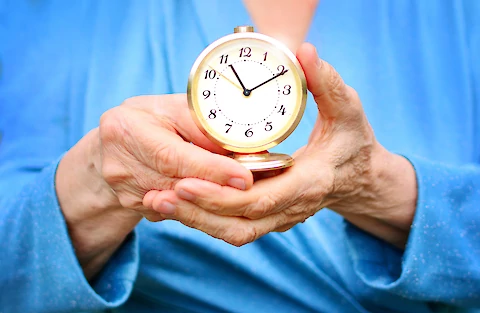
Daylight Saving Time marks a notable change in our daily lives, shifting our clocks forward to extend evenings and save energy. For seniors, especially those with dementia or Alzheimer's, this transition can be challenging and confusing. Whether you're a family member caring for a loved one or a professional caregiver, the tips and insights shared here can be instrumental in helping seniors adjust to the changes in time.
The Challenges of Daylight Saving Time for Seniors
Daylight Saving Time can pose unique challenges for seniors. With the advancing march of technology, many households have both analog clocks and Wi-Fi-enabled clocks that update automatically. This mix can confuse seniors, leading to missed meals, medication times, or other important events.
The physical effects of this adjustment cannot be underestimated, either. Seniors may experience disrupted sleep schedules as their internal clocks, or circadian rhythms, try to adjust to the time change. This is especially true for seniors with dementia or Alzheimer's disease, who may experience increased disorientation and confusion during this time.
Strategies for Caregivers to Help Seniors Adjust to Daylight Saving Time
As daylight saving approaches, caregivers can take several key steps to aid seniors in dealing with this transition. Start by simplifying time-keeping devices. Adjust analog clocks to match Wi-Fi-enabled ones and ensure any confusing, outdated, or unnecessary clocks are removed. Communication is crucial: explain the time change in simple terms and reassure seniors that their daily routines will remain consistent.
To mitigate the negative effects on sleep, consider a gradual adjustment. In the week leading up to the time change, adjust seniors' bedtimes and wake-up times. Shift everything by 15 minutes each day so that by the time daylight saving arrives, their sleep schedule aligns with the new time.
Activities are a great way to facilitate this adjustment. Outside exposure is recommended as natural light helps regulate our internal clocks. Likewise, encouraging physical activities like gentle walks or gardening can boost mood and promote better sleep.
How Professional Caregivers Can Help Manage Daylight Saving Time
In instances where this adjustment seems overwhelming, professional assistance can provide much-needed relief. At Senior Helpers Greater Knoxville, our experienced caregivers are trained to handle the challenges that come with Daylight Saving Time. From assisting with time adjustments on clocks to implementing gradual sleep schedule changes, our team is equipped to ensure a smooth transition for seniors. We also design activities that encourage light exposure and physical exercise, further easing the adjustment process.
Moreover, professional caregiving provides an extra layer of support during this potentially confusing change. It can offer reassurance to seniors that their routines will continue as usual—and that they are in safe, capable hands.
Daylight Saving Time can be a challenging period for seniors, particularly those with dementia or Alzheimer's. However, with thoughtful planning, clear communication, and the right support, caregivers can help seniors navigate this transition with minimal disruption.
Get Help Caring for Seniors
If you're in Knoxville, Maryville, Clinton, or Loudon and seeking support for your senior loved ones, consider reaching out to Senior Helpers Greater Knoxville. With our dedicated team of professionals, we can provide the necessary assistance to ensure your loved ones maintain their routines and experience a smooth transition during Daylight Saving Time.